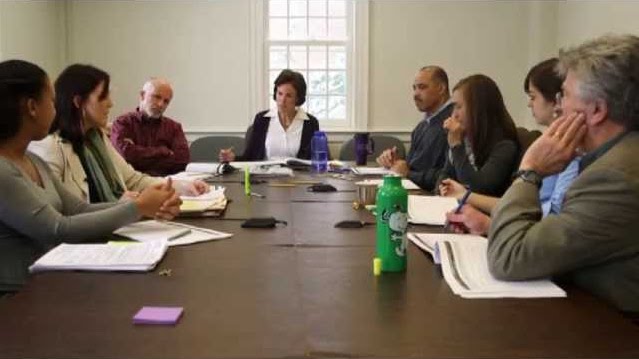This short video by Bloomberg brings you around the table of an admissions committee at Amherst College, a liberal arts college in Massachusetts, U.S., as the admissions officers sort through applications, share snippets of essays, and discuss the merits of students before voting on who to admit and who to defer.
Not to say that all admissions review process is the same, but this sends a clear message on the importance of having an engaging and memorable personal statement, on top of meeting the university’s academic entry requirements. Notice how the admissions officers react to the students’ personal stories in the video? The more intense the story, the stronger the response.
How to Write an Outstanding, “Personal” Personal Statement?
One admissions officer even admitted that he didn’t know why he raised his hand. That is where emotions are at play. Something in the applicant’s personal statement must have touched him somehow, a narrative that he could relate to and connected him with the student, and so his heart sends a message to the brain, “It’s a yes from me!”
That’s the power of “personal” in a personal statement, a story unique to you that only you tell best. It means that you write about yourself, your background, thoughts, and feelings. Start by sharing an anecdote, a moment, or an incident. Talk about your source of inspiration or motivation. Don’t hesitate to bring up a challenge or obstacle you have encountered. Highlighting adversities in your journey can help the reader better appreciate your achievements and accomplishments.
Getting personal also means talking about your feelings and thoughts, elaborating on how an experience impacts you, your opinions about a topic, and sharing your personal goals and plans. The way you articulate matters and envision the future will speak volumes about your personality. Show that you possess a desirable character and a distinctive attitude, with a mind of your own. Or even better, get the panel curious about you and want to learn more.
Whilst it is personal, your essay is not intended to be a sob story. You are not seeking a sympathy vote. Present your story in a direct manner. And be careful not to sound like you are whining, complaining, or ranting.
The entire process of having to promote yourself can indeed be intimidating, and you may not know where to start. But you know yourself best. And you owe it to yourself to stand out in such a competitive process. Plus, this is just the beginning of many personal statements to come, not to mention the many cover letters that you shall slave over when applying for internships and your first job after graduation.
So, get on it and make it work! Start writing as early as you can and get multiple drafts in before submitting your personal best piece. Practice makes perfect.
What Are Singapore Universities’ Requirements for Personal Statement?
The personal statement requirement for each university and programme is different. Some may ask for an essay response to a prompt, while others may be non-specific. Be sure to read and follow all the instructions carefully and keep within the word limit as specified, answering every question in the application.
Here’s an overview of personal statement requirements at the Singapore universities:
- National University of Singapore (NUS) requires applicants to share their achievements through a personal statement of no more than 2,000 characters (about 300 words).
- At Nanyang Technological University (NTU), the requirement differs by programme. For example, the School of Art, Design and Media (ADM) requires students to write about what they think is unique and interesting about themselves and briefly discuss a piece of art, design, or media work of their choice.
- Students applying to Singapore Management University (SMU) are to provide a 300-word personal statement about their most outstanding achievements and contributions and respond to 2-3 short answer questions in no more than 50 words.
- Students applying to the Singapore University of Technology and Design (SUTD) are to choose two out of four “personal insights” questions to answer and provide a list of past experiences and achievements relating to leadership, internship, research, entrepreneurship, and community service.
- The Singapore Institute of Technology (SIT) application portal provides a series of prompts to guide students in writing their 300-word personal statement that should describe an exceptional achievement or key highlights in their academic or employment experience.
- Singapore University of Social Sciences (SUSS) requires a portfolio showcasing the applicant’s non-academic achievements and a 500-word personal reflection essay on a given topic.

